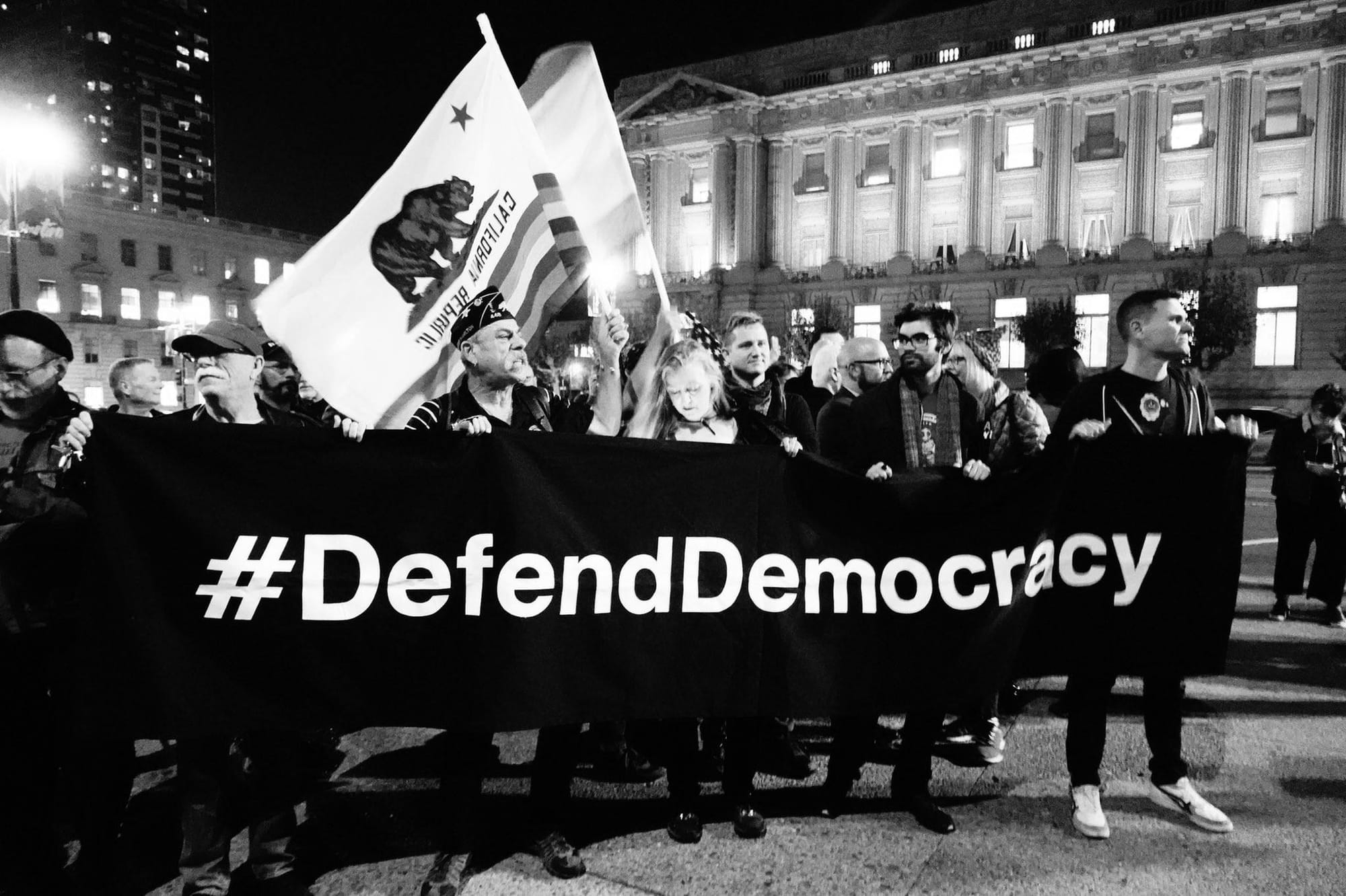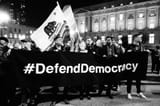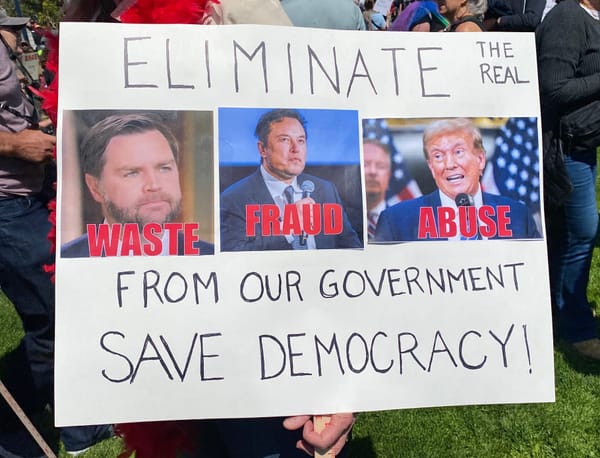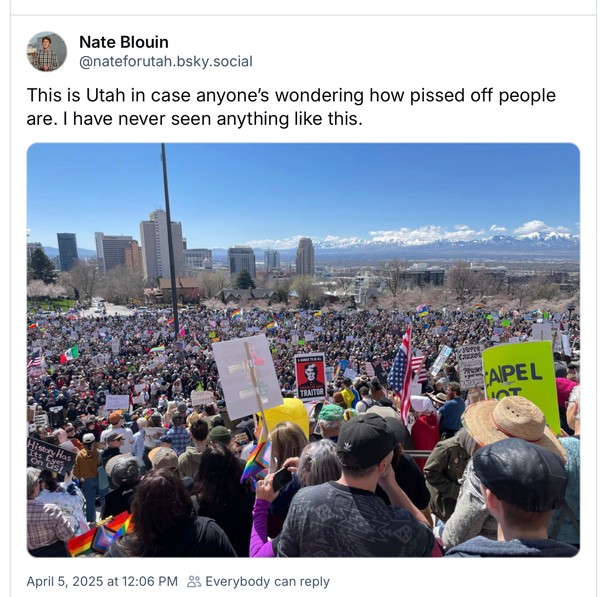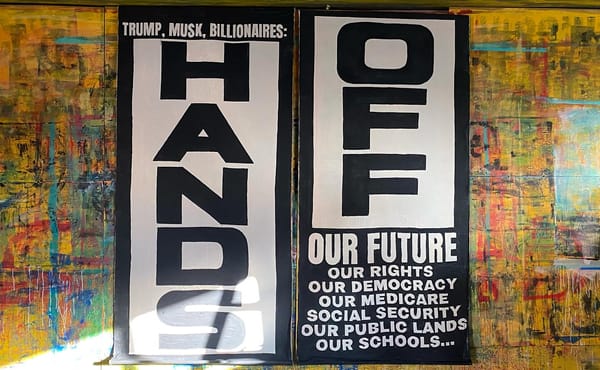When Hope and History Rhyme
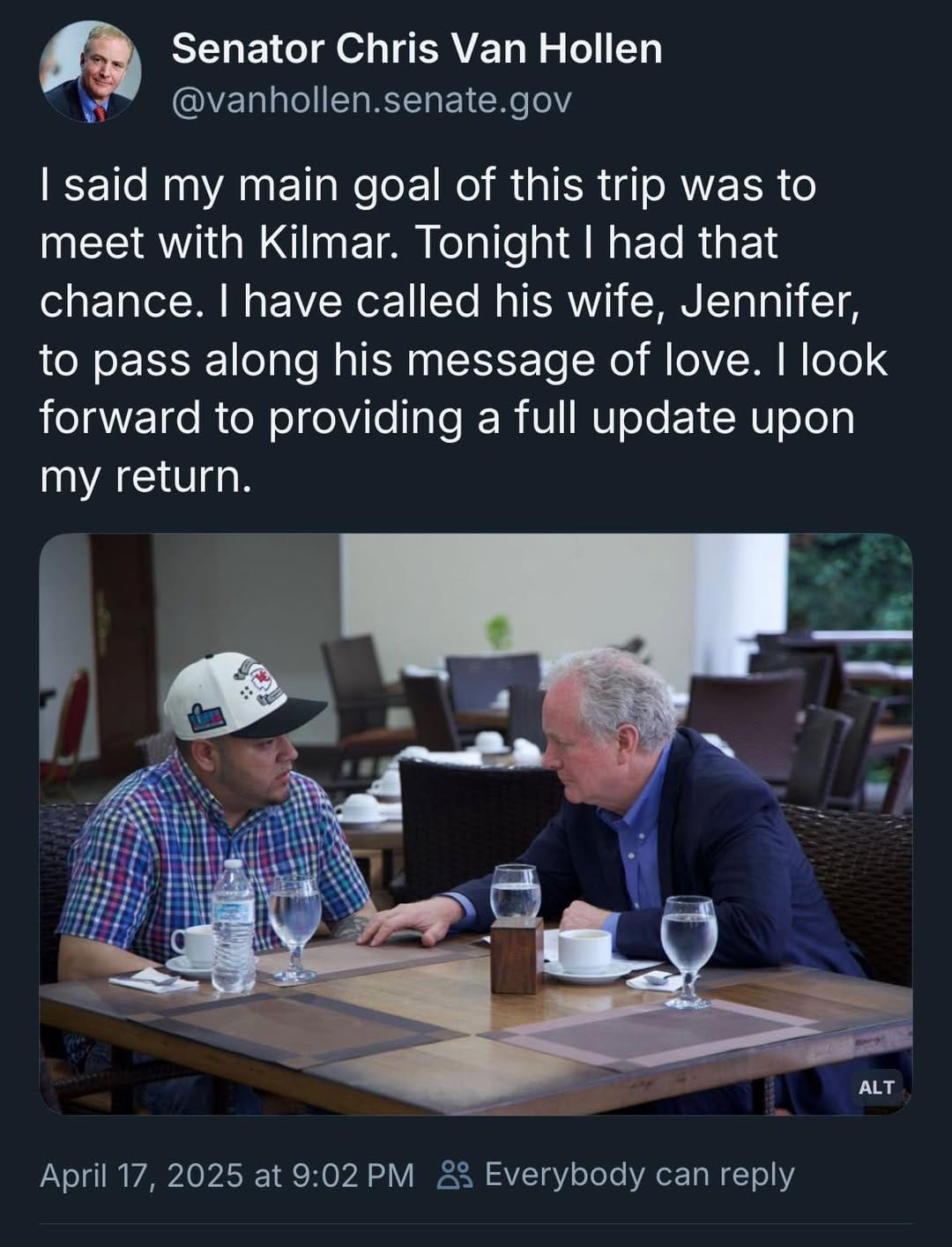
In the summer of 2011, I went to a protest against economic injustice in New York City. I've gone to a lot of demonstrations over the decades, and this one was as forgettable as most of them are--they're good, they contribute, they aren't landmark events, you're basically flossing your democracy so it doesn't decay. Then on September 17th, 2011, another protest against Wall Street was called that seemed like it might have been just like the one I attended. But it wasn't.
People decided not to go home, and more people came and more, and they ended up staying in their tents and community kitchens into November, capturing the spotlight, creating space for the telling of stories of lives ruined by subprime mortgages and medical and education debt, inspired hundreds of sister Occupys to spring up all over the US and the world and changed the political conversation about economic exploitation and debt in this country. No one knew it was going to happen, but when it happened it was like a release valve had been opened, and so much energy poured through, changing the national conversation, creating communities, stirring hopes, inspiring the founding of the Debt Collective and the campaigns against abusive debt systems, launching many statewide and local initiatives and improvements.
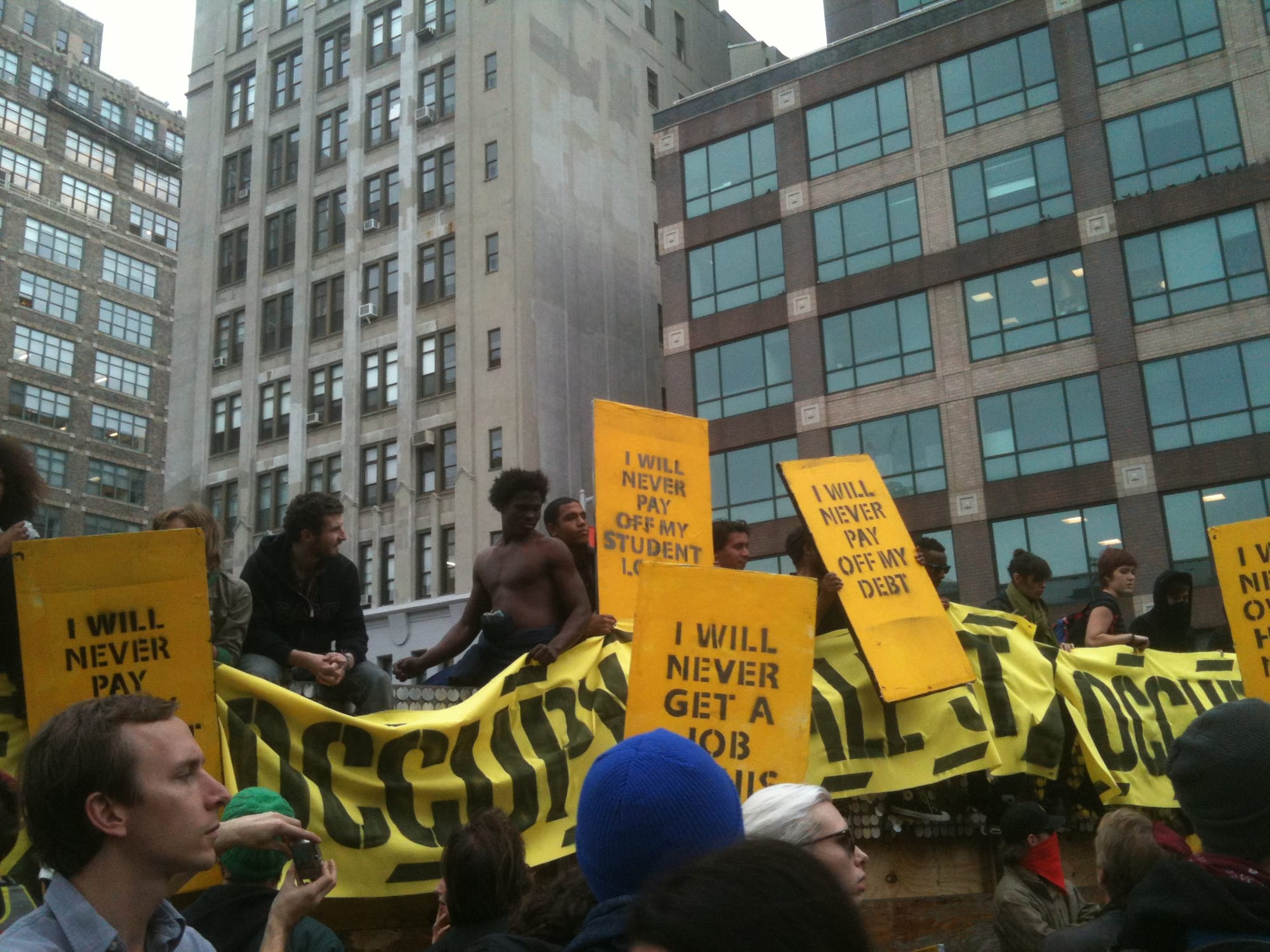
In Chile in 2019, a small rise in the cost of subway fares in Santiago, the capital, prompted protests that somehow grew and rose and became an uprising that spread across the country and led indigenous people to topple statues of conquistadors and much else to transpire and a fair amount of police violence, some of it fatal, some of it robbing people of their eyesight, against protestors. CNN reported at the time, "As the protests intensified, [then President] Piñera declared a temporary state of emergency throughout the country. Daily curfews were put in place in the capital Santiago and soldiers deployed to the streets. He also asked all his cabinet ministers to resign, and promised to impose social and economic reforms that were at the heart of the protests." Which is a reminder that even if they impose martial law or its equivalent, protest can have and often has power.
The current president of Chile, Gabriel Boric, who is 39 and left/progressive, rose to prominence in those and earlier student protests, which weren't really about subway prices but the larger issue of economic inequality. We show up, we protest, we speak up, we keep our solidarity and our determination intact, and then sometimes, somehow something happens and it's not just another protest, it's history, it's transformation, it's insurrection.
I tell these stories because I think we are all on edge, watching the atrocities and outrages of the Trump Administration, and feeling that something more than the current protests must happen, something decisive, something transformative. I tell them because I know we don't know exactly how and when it will happen, but I suspect it will, and I suspect it will start with something small, with a "one more thing/one last straw" kind of incident. No one knows when or where.
Meanwhile, we're in a new kind of war. The administrative branch of the federal government is attempting to destroy the United States by dismantling the departments, services, and programs of the federal government. I never thought I'd write that sentence, but DOGE/Trump is like an autoimmune disorder, a part of the body politic attacking the whole. They're also attacking individuals in this country--the immigrants, from poor refugees to PhD candidates they've grabbed and deprived of due process. They're attacking the Constitution and the rule of law. And abroad, they are waging the kind of war it is when you suddenly pull away the things people need to survive.
In Zambia, NPR reports, " People are falling ill because the U.S.-funded clinics where they got their HIV medications and care have suddenly been shuttered. The staff is gone. The electricity has been shut off. Some patients have already run out of their daily pills that keep HIV at bay — and they have started to feel the physical consequences of the virus surging back." The Associated Press reports, "The Trump administration has ended funding to U.N. World Food Program emergency programs helping keep millions alive in Afghanistan, Syria, Yemen and 11 other impoverished countries.“This could amount to a death sentence for millions of people facing extreme hunger and starvation,” WFP said on X."
Here in the USA, things are ramping up, our things as well as their things. Harvard refused to surrender to the outrageous demands of the administration. The Chronicle of Higher Education reports, " Faculty-senate leaders at several institutions are calling for the creation of “mutual-defense compacts” to guard against what they describe as “legal, financial, and political incursion” by the Trump administration. Four senate bodies — at Rutgers University, the University of Nebraska at Lincoln, the Indiana University at Bloomington, and the University of Massachusetts at Amherst — have passed resolutions advocating for such an alliance, and several more will consider doing so in the coming weeks." The Washington Post published an editorial by Mahmoud Khalil from his ICE prison in Louisiana, profound in its morality and poetry, astonishing to have been written in such brutal circumstance. The courts smacked down more lawlessness.
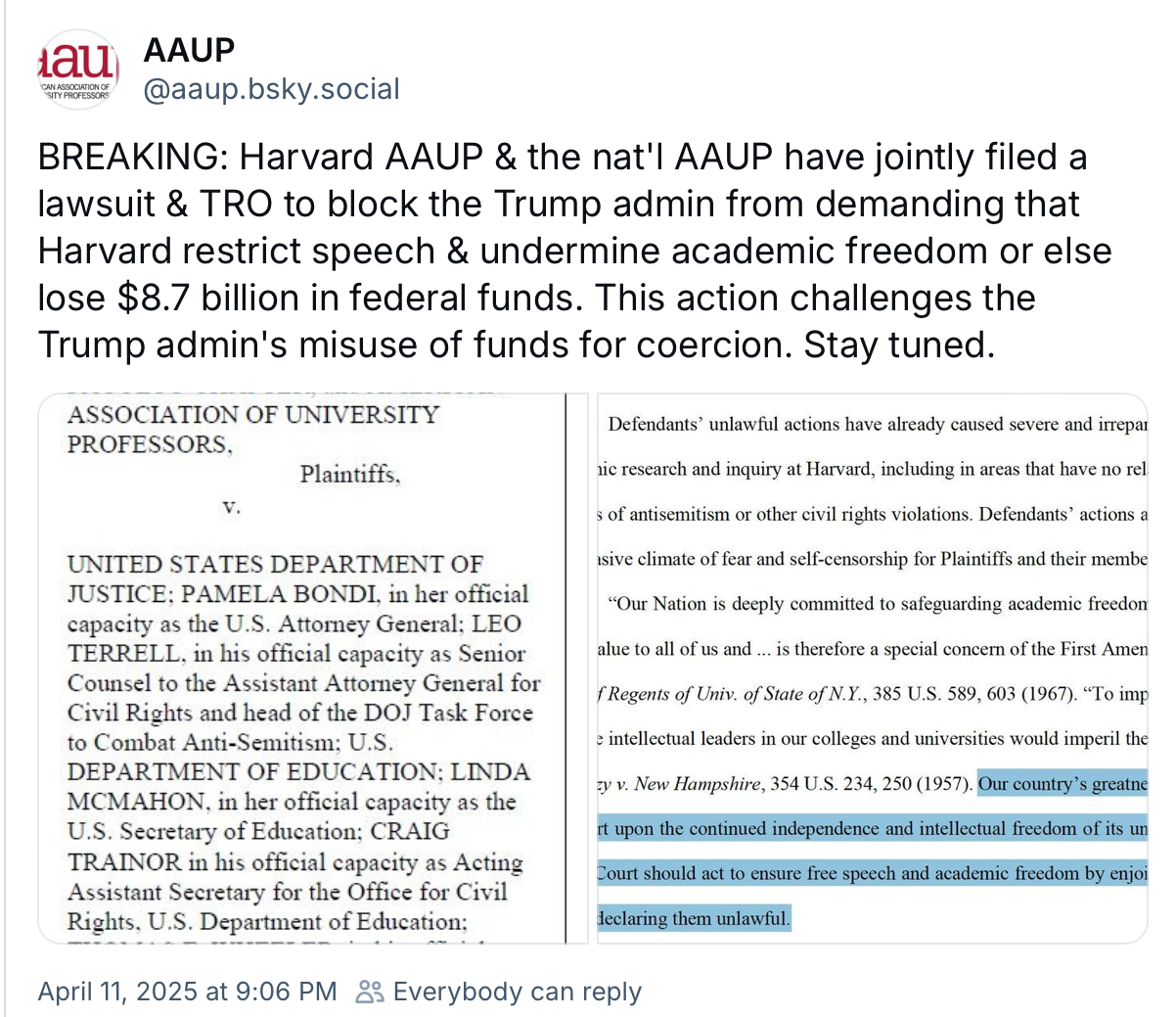
Senator Chris Van Hollen of Maryland flew to El Salvador to try to find out what happened to his constituent Kilmar Abrego Garcia not long after Cory Booker spoke with passion against the Trumpists for twenty-five hours without a break. Amazingly, Van Hollen just met with Garcia (there are photos) and will be reporting more soon about his condition and situation. Alexandria Ocasio-Cortez and Bernie Sanders's speaking tour, much of it to red states and counties, is attracting record crowds. Some members of congress are starting to act like we're in an emergency.
Independent Senator Angus King was supposed to talk to Heather Cox Richardson about Paul Revere, but he instead went into a powerful denunciation of the Republicans and the Trump Administration: "There are three guardrails, Heather, and one of them is the Congress, and they're failing miserably." The courts, he added, "are doing pretty well but they need to know they have the support of the American people and the congress. The third guardrail is the American people." He worries about waiting for the midterms because "I believe the overreach is getting worse every day."
Moderates are speaking up and there are some murmurs of Republican defection, notably in Congress where twelve signed a letter objecting to defunding Medicaid. Alaska's Republican Senator Lisa Murkowski just copped to what's holding some of them back: "We are all afraid…I am oftentimes very anxious myself about using my voice because retaliation is real." Which isn't really news--we've known that at least since Trump arrived, the party is run like, well, maybe MS-13, with threats and punishments for defectors and dissidents. Talking on CNN, Republican Congressman Jared Golden chimed in, "Think about whether any of us want to vote a certain way but because we fear for our personal safety, we decide to vote differently. We are no longer representing our constituents. We are representing something else, more like the bully threatening us. That is more like Vladimir Putin operates."
But what I'm here to say, is that the pressure is building. There are protests and strikes scheduled and good people organizing and organizations like the Sunrise Movement, Indivisible, and Third Act standing strong. Not just the visible pressure of these public events but the interior pressure of moral distress, outrage, fear, disgust, horror at the destruction being wrought and the harm being done. It's no longer radicals and progressives alone; it's moderates and centrists and even people who voted for Trump but didn't understand they were voting for this.
When does the pressure break, the dam crack, the earthquake fault slip, the ferment explode the bottle? No one knows. But we can prepare for it, we can build toward it, we can lay the groundwork for it. And I wouldn't be surprised if the summer of 2025 exceeds the intensity and scale of the summer of 2020, the summer of the Black Lives Matter George Floyd protests. But I don't know. Neither do you. No one does. All we can do is keep showing up, keep speaking up, keep donating, keep connecting, keep our values close and our courage strong and keep an eye out. And not give up, including not settling into this as though it's normal or permanent or we're helpless. I think I said here before that it's like we can pile up the fuel for the bonfire but it's lightning that will ignite it.
I know a lot of people these days are uncomfortable with uncertainty, but I'll take the true knowledge that is we don't know over the false knowledge that we do. No one knows the future. But we do know the past, which tells us that things happened no one anticipated, that history itself is made out of surprises that only seem obvious or inevitable in retrospect. This administration has destabilized the world and intends to rule it. But I don't think all the surprises will be to their benefit.
By saying surprise, by saying lightning, I make it sound like "it happens," and it comes from somewhere else. It comes from us when we find ourselves, our values, our courage say no more to the crimes and harm, it comes from us when we come together as civil society, it comes from us when like the countless droplets of a wave we wash over government and institutional power to show that greater power that can start it all over again.
As Seamus Heaney wrote:
History says, don’t hope
On this side of the grave.
But then, once in a lifetime
The longed-for tidal wave
Of justice can rise up,
And hope and history rhyme.
There have been many such "once in a lifetime" waves in my lifetime, including the Good Friday Agreement in Heaney's native Northern Ireland, the end of apartheid in South Africa, the liberation of the East Bloc countries in the revolutions of 1989, the Zapatista uprising of 1994, the creation of the huge indigenous-governed province of Nunavut in Canada in 1999, the color revolutions in Eastern Europe in this century. All the decolonizations in Africa in 1960 and after I've been reading about. It's a ballad full of rhymes, and while I don't know what will happen or when, I know it will rhyme again and it might soon.
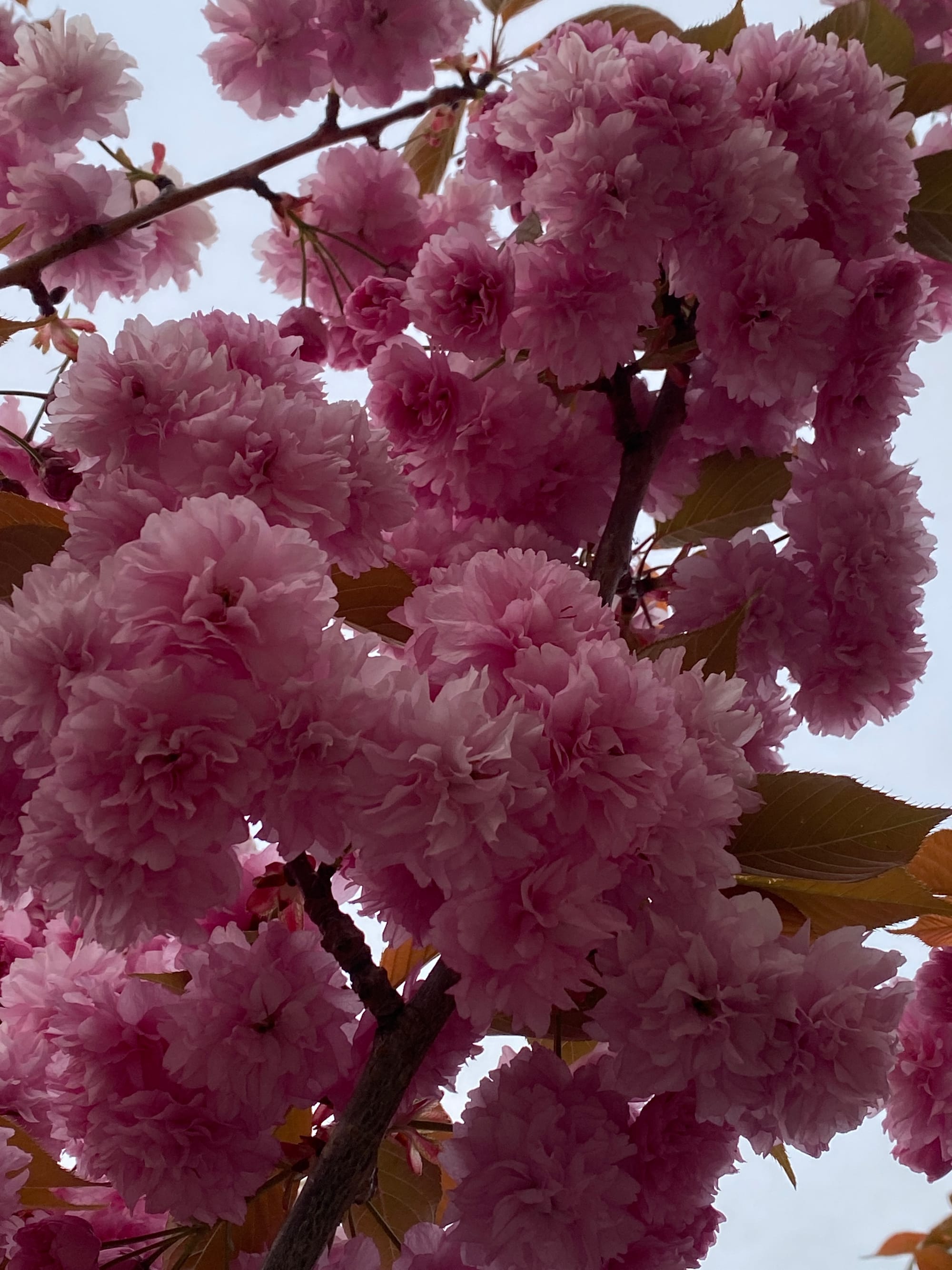
I have so much I want to write for you, but I'm also trying to finish a book by the end of the month and Saturday I'm the host at a gala for one of the two climate organizations on whose board I sit, Oil Change International. It's a concert by Kronos Quartet, generously donating their time and genius to the cause and it should be lovely. The pressure is on me this month for these other tasks. It's on all of us to save our country and world from the rampaging destruction of these nihilistic authoritarians. See you soon. Keep the faith.
